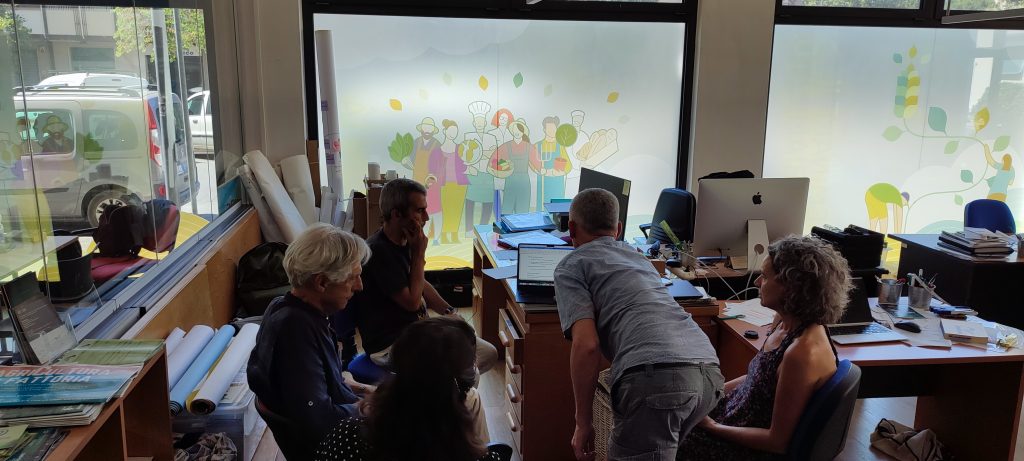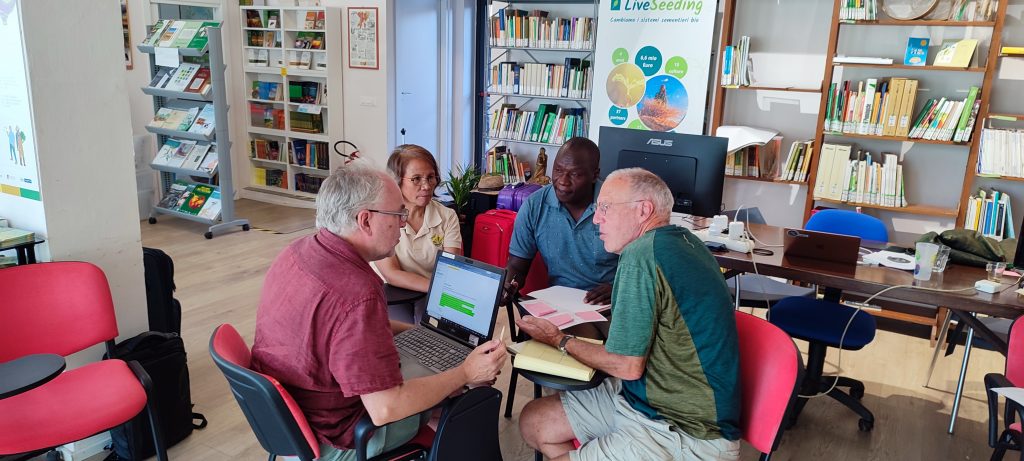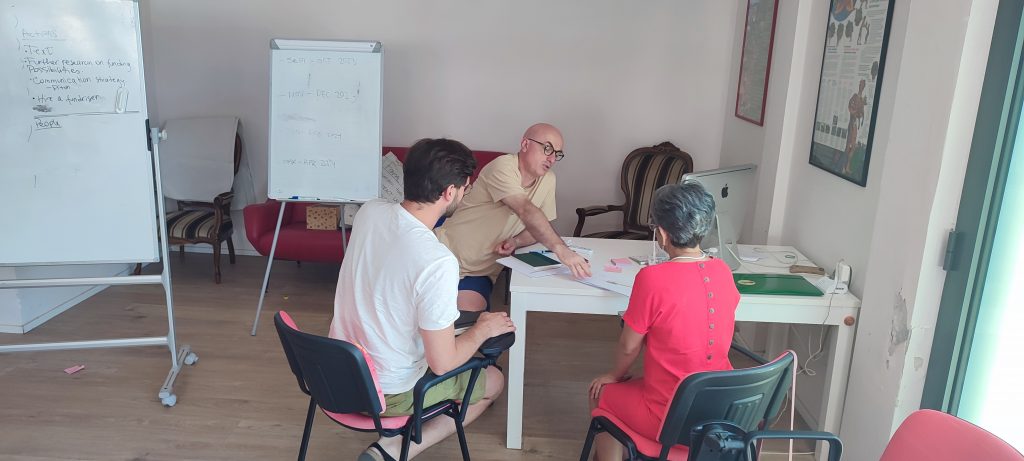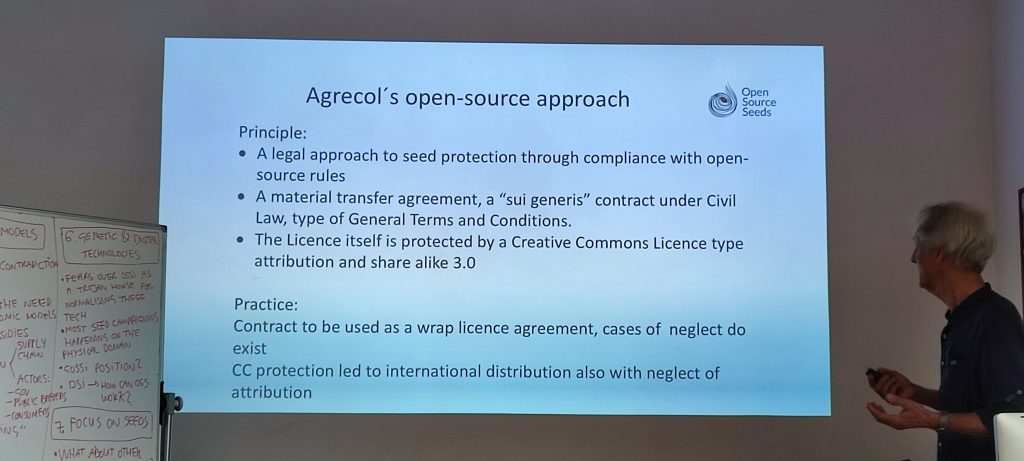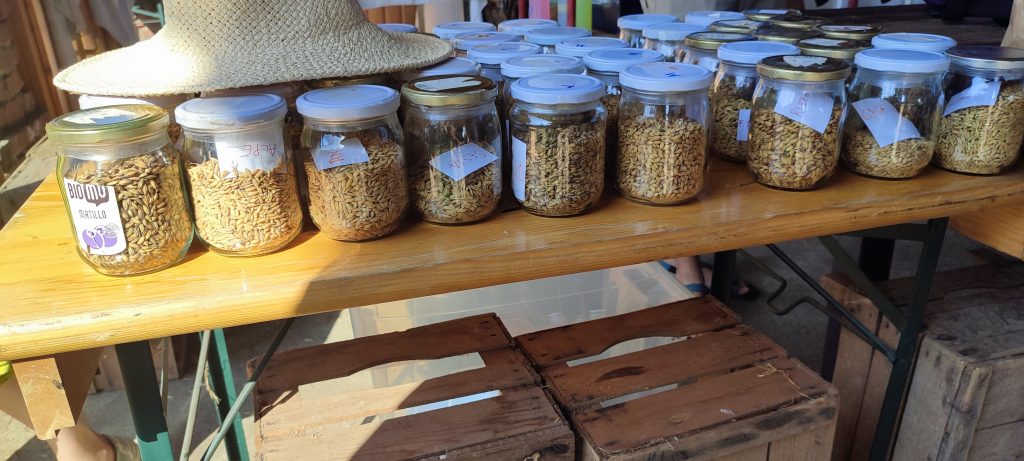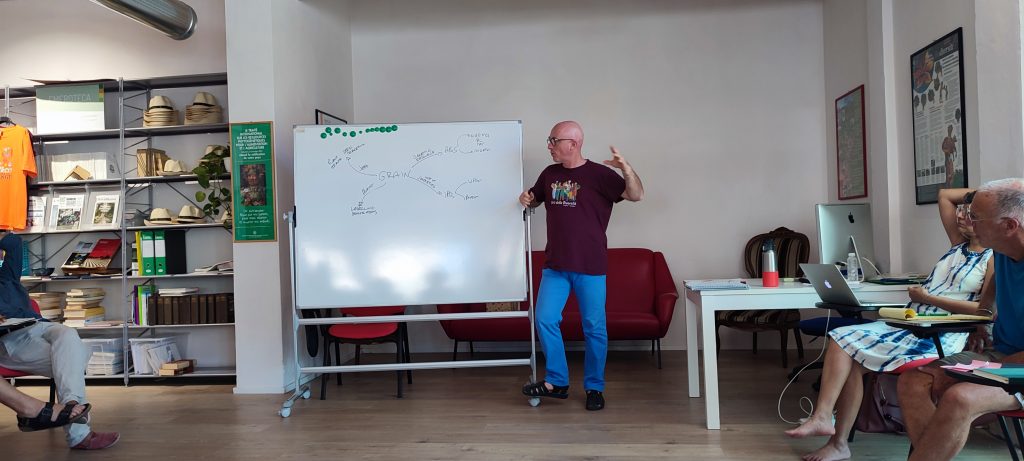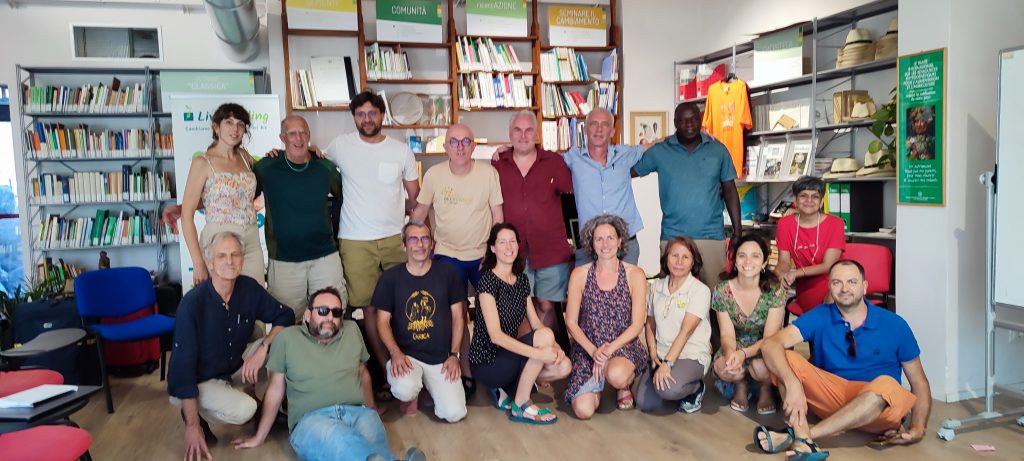From July 14 to 16, the first in-person meeting of the Global Coalition of Open-Source Seed Initiatives took place in Scandicci, Italy. The event gathered worldwide initiatives exploring open-source ideas and specialists in seed Access and farmers rights. This gathering comprised members from various organizations such as Bioleft, UNED, Seed Savers Network, Rete Semi Rurali, OXFAM, Agroecol, Kassel University, OSSI, Let’s Liberate Diversity (RSR), FAO y MASIPAG and the independent Indian researcher, Shalini Bhutani.
Over the course of three days, these initiatives shared their action strategies, ways that open source is being or would be implemented, the stakeholders they engage with, and their future plans. At the same time, the vision, mission, and principles of GOSSI were redefined:
“We recognize that all seed/knowledge/innovation are the collective outcome of centuries of wisdom and improvements from diverse communities that have generously and freely shared. Open-source seeds (OSS) are an effort for acknowledge, respect, maintain, build upon and promote that tradition and those freedoms and practices for the present and future generations” the group agreed.
- OSS refers to plant/genetic materials subject to the explicit and implicit—legal, ethical, or organizational—commitment to maintain the maximum freedom of use of the seed and any of its derivatives.
- Anyone can freely use open-source seeds, i.e., grow them, save them, propagate them, further develop them, use them for reproduction, and sell them.
- Recipients of open-source seeds cannot privatize the seed or its offspring through intellectual property rights (IPR) or other usage restrictions.
- Recipients of open-source seeds must grant the same rights and obligations to subsequent recipients.
- The breeder of the open-source seed will be recognized through credit attribution.
- Benefits will be shared throughout the seed value chain.
Future plans were discussed. Some work areas and ideas were:
- Cross-learning between initiatives for knowledge-sharing.
- Legal forums: work in international agreements, laws, and proposals to strengthen farmers’ rights.
- Communication: raising awareness about the open-source ideas and identifying related initiatives.
- Research and Development: partipatory plant breeding.
Let´s celebrate this meeting!
